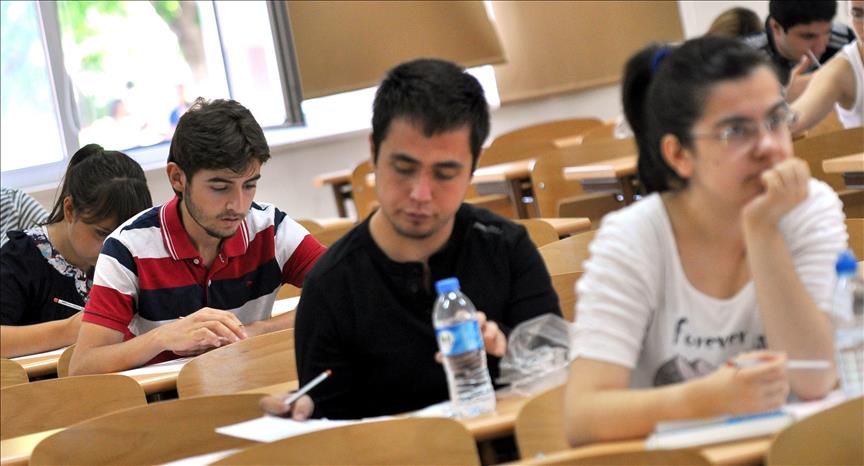
ANKARA
About 2 million Turkish young people are choosing their future career paths right now.
Turkish high school graduates choose the departments and universities they want to study in between July 7 and 17, having taken the national university entrance examination in June.
Each June, high school graduates across the country take the multiple-choice standardized national exam. Universities rely heavily on the three-hour exam’s results for admission.
The exam, in other words, has a profound influence on the Turkish school system.
Many parents and students oppose the multiple-choice structure of the exam as well as the universities’ heavy reliance on it for admission.
One of these people is the 18-year-old Furkan Sasmaz, who took the exam for the first time this year. And he thinks that his entire future should not depend on just one day.
“I prepared for this exam all my life, from elementary school to this day,” Sasmaz said in an interview. “That our whole life depends on just one exam is not fair. Other criteria should be also considered.”
Another 18-year-old high school graduate who took the exam, Ekin Ayan, also objects to the exam’s structure, and what she thinks is its inordinate importance.
“The exam is eliminative,” he said. “It is based on rote-learning.”
“This exam determines my future career so it was very stressful,” Ayan said. “I think there should be more than one exam and they should be spread over the four-year high school period.”
Approximately 2 million people all over the country applied to take the exam in 2014. About half a million of them will get a chance to enroll in a university.
Not every country places such a life-time emphasis on a single exam.
In England, there is no nationwide official university entrance exam. High school students are placed in the universities based on their academic success in high school.
In the U.S., a number of criteria are taken into account for university admission. Academic qualifications, extracurricular interests, a three-hour, forty-five minute exam that measures basic skills (called the SAT) as well as reference letters and interviews are taken into account during admission process.
In Finland, students are not required to take a competitive exam but a matriculation exam, whose purpose is to check the level of maturity and knowledge of students.
But that's not the way in Turkey.
“We are doomed to a multiple-choice national university entrance examination,” said Alipasa Ayas, a professor in the faculty of education at Bilkent University, one of Turkey’s renowned universities in Turkey.
He said academic success in high school and honors received from the Scientific and Technological Research Council of Turkey are also taken into account during the university admission process.
But he suggested that these criteria could be more diversified or the chance for students to take the entrance exam could be given more than once a year.
“The student could be sick on the day of the exam,” Ayas said. “For example, the assessment selection and placement center could hold the exam five times a year and then take the highest score of the student for admission.”
Open-ended questions are another possibility, Ayas said.
However, such an exam format requires that at least 50,000 to 60,000 teachers be trained to score the results, he said. Another problem with essay questions is the possibility that exam correctors might favor some students over others, he said.
“We should utilize other countries’ experiences regarding the structure of exams," Ayas said. "However, it is difficult to apply the same format to Turkey due to the different culture.”
Despite the competitive national exam in Turkey, the country lags behind England and United States in education, according to an international report.
Turkey’s average score remained below the average Organization for Economic Co-operation and Development trends for all years in the Program for International Student Assessment, which measures 15-year-old students' reading, mathematics, and science literacy. Turkey ranked 44th out of 65 countries for the year 2012, according to the assessment report.
Anadolu Agency website contains only a portion of the news stories offered to subscribers in the AA News Broadcasting System (HAS), and in summarized form. Please contact us for subscription options.

